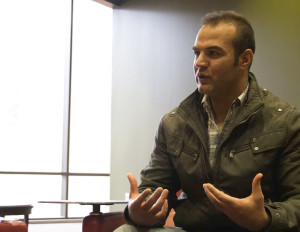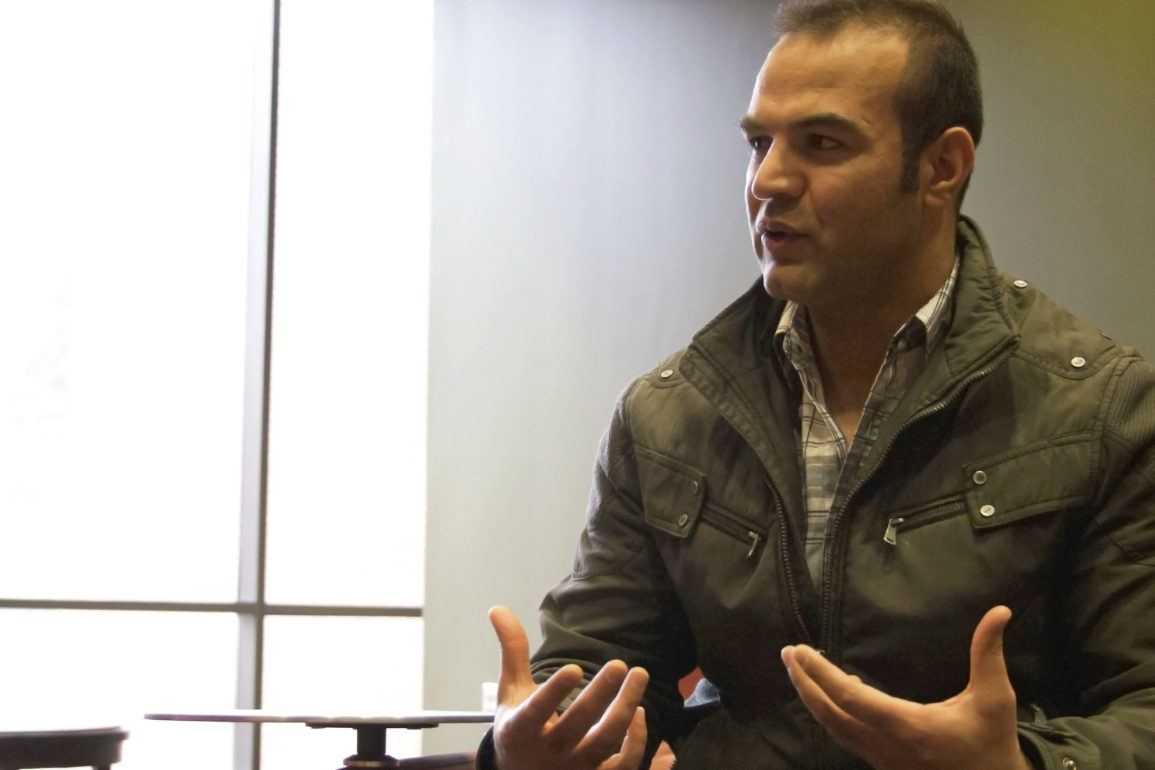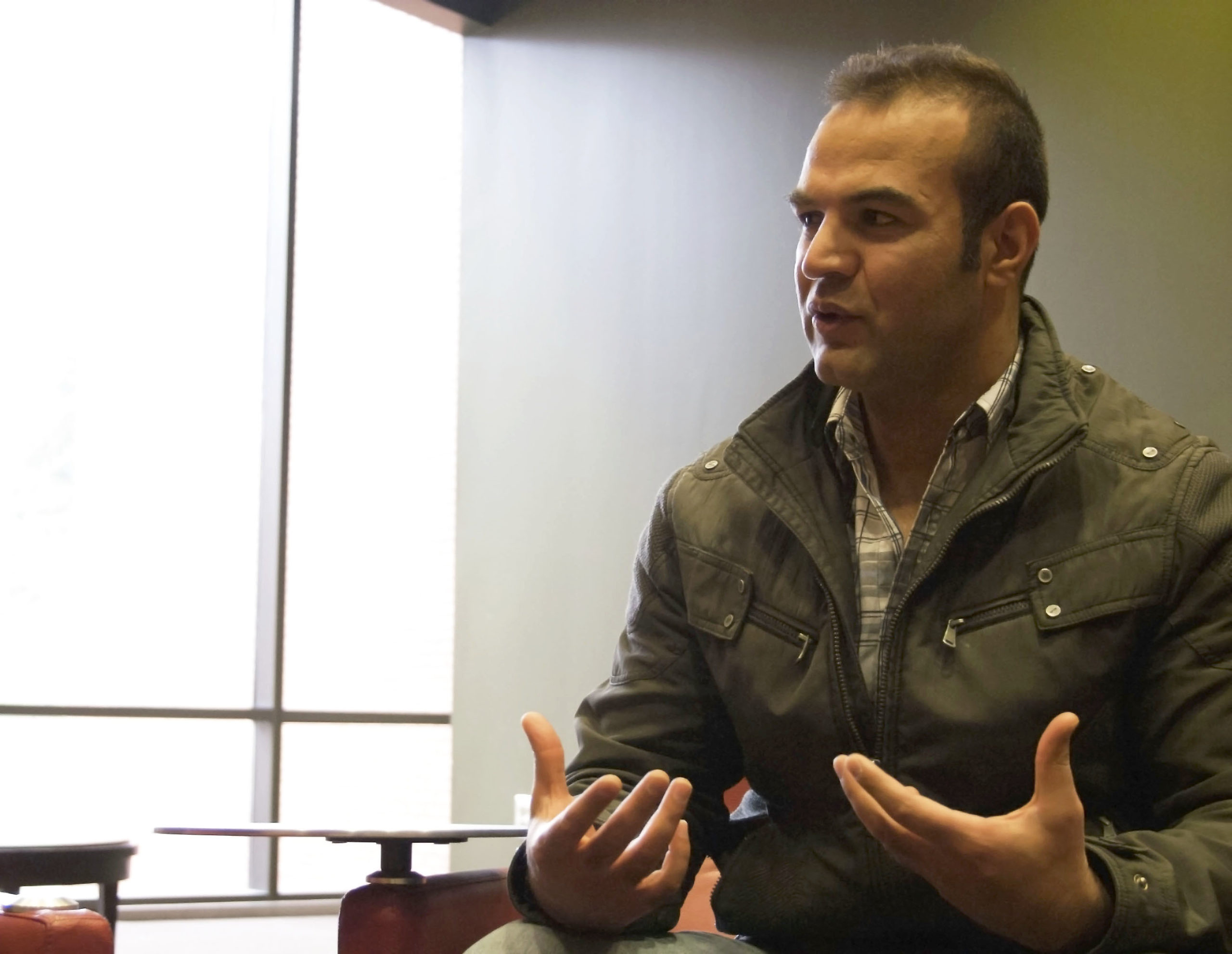Two American Muslims reflect on how the self-proclaimed Islamic State has obscured the understanding of their religion.
Khalid Fazly breathed a subtle sigh, and lifted his eyes. Born in Afghanistan, the Ball State graduate student and former Muslim Student Association President mulled over the violent extremism that has pervaded the Middle East over the last year.
“I think that my religion has been hijacked by some extremist groups,” he said. “People shouldn’t really judge Islam by a small group like ISIS [The Islamic State of Iraq and Syria].”

Khalid, like many Muslims in the United States, feels that his faith has been completely misrepresented by the Islamic State and groups like them that have dominated the American media for the better part of the last year.
Even recently, Fox59 reported in February that a man linked to ISIS was arrested the same day that President Obama visited Indianapolis.
Rooted in the Syrian civil war that began in 2011, the Islamic State originally rose to power as an anti-government group geared toward creating a utopian Muslim caliphate (a government based on Islamic religious law) in the Middle East. It now controls large parts of Syria and a few key cities, as the fighting continues.
A report from the Iraq Body Count Project found that at least 17,049 civilians died in Iraq in 2014 as a result of the conflict, citing the Islamic State’s brutal offensives as a “major force.” Khalid said this directly violates the peaceful doctrine of the Muslim holy book, the Qur’an.
“Any action of ISIS goes against Islam. One of the main important things in the Qur’an is that killing one person is as if you’re killing the whole human being, and saving one person is saving the whole human being,” he said.
Extremist groups like ISIS represent a very small portion of the world’s 1.6 billion Muslims, but an exact figure is difficult to gauge. Even so, the vast majority do not agree with their ideals and the methods they use to enforce them. Public opinion polling conducted in predominantly Muslim countries in the Middle East by the Fikra Forum found that only five percent of Saudis, three percent of Egyptians, and no one in Lebanon publicly supports ISIS.
Yet, Americans still cling to a stigmatized understanding of Islam. Ever since the 9/11 attacks, an association with Islam and violence has become ingrained in the minds of many Americans, a concept referred to as “Islamaphobia” in an article published in the Islamic Monthly. In reality, the article says, Muslims in general did not execute this attack, nor did they see it as reflective of their religion.

The article went on to seek social and political explanation for how those ideas became so widespread among Americans, criticizing the media and the government for their handling of the situation:
“While the media has very little incentive to challenge the religious explanations of 9/11, the state has a definite interest in perpetuating them because this association provides a rationale for the expansion of the state’s authority and control over its citizens. Consequently, both reinforce through their actions […] the association of Islam with violence that has ostracized a segment of the American population on the basis of religion.”
Edgar Hopida, director of communications for the Islamic Society of North America, addressed this stigma. He said that in his experience, it’s cyclical; every time a terrorist attack happens, or a new situation emerges overseas, there’s a backlash of some sort against the Muslim community.
“Our loyalty is questioned, our commitment to the country is questioned and whether we’re good people is questioned,” he said.
Hopida said that the best way to get rid of that negative association is to initiate an honest discussion about American governmental policy overseas. That policy has fueled much of the anti-American sentiment in the Middle East, dating back to the Soviet occupation of Afghanistan that began in 1979.
“It seems like from the research it’s showing that these people overseas are upset with us because we’re bombing them, we’re undermining their societies, and we’re destroying their governments,” Hopida said. “Of course these people are going to lash out.”
The Iraq Body Count report noted that U.S.-led coalition air raids targeting the Islamic State were responsible for 118 civilian deaths in 2014. These are merely the confirmed deaths though; 10,858 more civilians were killed without a clear idea of who was directly responsible.
“Some of these people are willing strap themselves with bombs and kill themselves for the sake of what they feel is defending their country,” Hopida said. “Even though it’s definitely wrong and against the teachings of Islam.”
The United States re-entered the Iraq conflict in June 2014, launching a series of air strikes and humanitarian aid drops to fleeing refugees in an attempt to intervene. Prior to that, U.S. troops had been in the country since the 2003 invasion launched by the Bush administration.
Khalid offered a simple proposal to Americans with this negative understanding of his religion.
“Look at your neighbors, your fellow classmates; they’re not that different from you, you know?” he said. “They’re people who want a peaceful life, an education, and an opportunity to improve themselves.”




